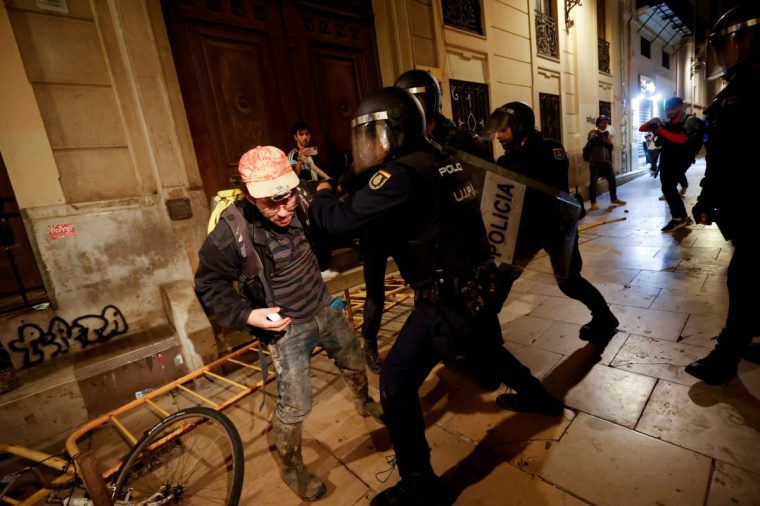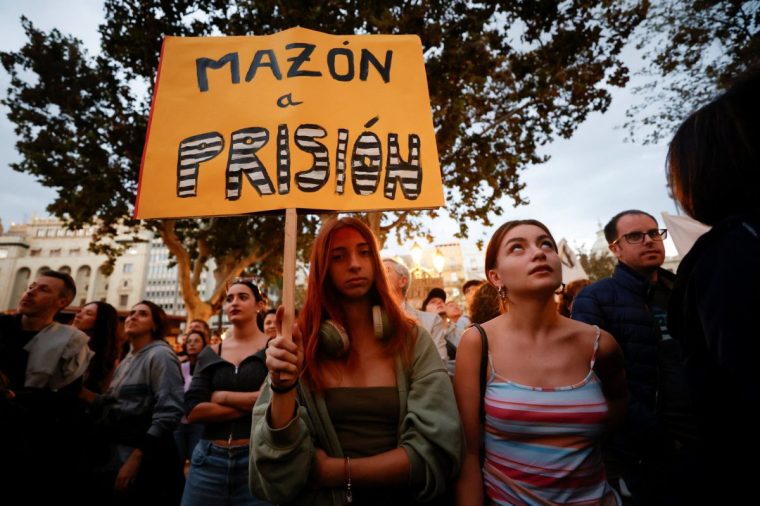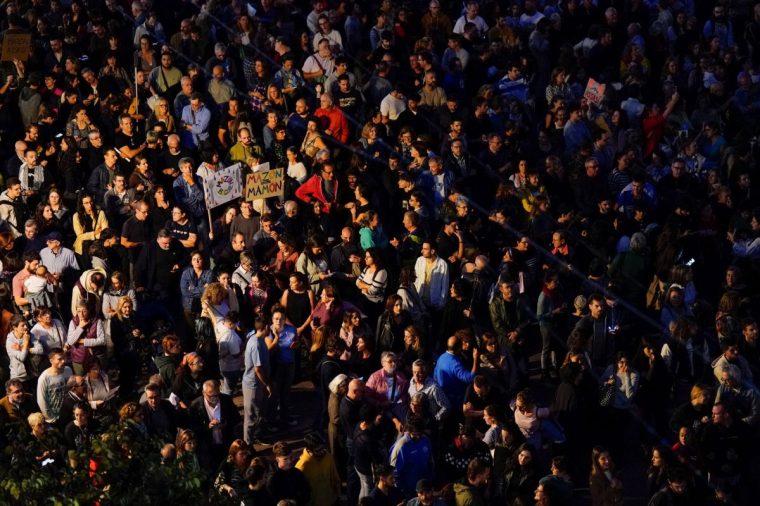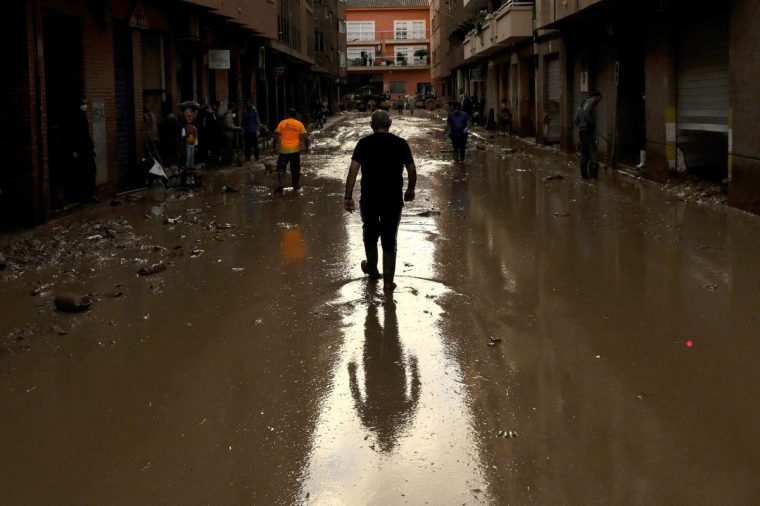IN MADRID – Authorities in Spain’s Valencia region have ruled out resignations and promised a full explanation on Thursday after a protest against the official response to Spain’s worst natural disaster in decades attracted more than 100,000 people.
Vice President of Valencia’s regional parliament, Susana Camarero Benítez, said on Sunday “no resignation is an option at this time”, following a mass protest against the management of the floods that killed more than 200 people.
Arriving at a crisis meeting on Sunday, Valencia’s regional leader Carlos Mazon said an explanation “with great detail” will be provided on Thursday.
“I think it is also important for the victims and for what has happened that things are explained well in an orderly manner, avoiding this phase of hoaxes that we have also had to go out to deny, taking time away from what is truly important,” he said according to a report in El Pais.
Twelve days on from the disaster water supply remains a critical problem for residents in five affected municipalities, with around 7000 people without water.
On Saturday, a demonstration called by 20 civic groups led to more than 100,000 people turning out in Valencia. Organisers blame Mr Mazon for failing to send a warning to residents early enough to allow them to get out of harm’s way.
The protest was mainly peaceful, but some protestors threw objects at riot police in front of Valencia’s city hall, where a march to the seat of the regional government started, before officers beat them back with batons.
Some objects were also hurled at the city council building and caused minor damage.
The city’s mayor, María Catalá, shared pictures on social media of broken windows and a video appearing to show a fire being started, and wrote: “Vandalism is not the solution.”
Valencia City Council condemned “vandalism”, saying the city had also been affected by the floods
Protesters poured into the centre of Valencia chanting “killers!” and waving banners including ones that read “our hands are stained with mud, yours with blood,” and “your incompetence costs lives”.
Spain’s AEMET state forecasting agency issued a red alert at 7.31am on 27 October when the floods hit, but later the same day, regional authorities told Valencians the storm would dissipate in a tweet that was later deleted.



Only at 8.15pm did officials send a red alert to residents’ mobiles – about two hours after the storm was at its peak. But this was exactly when thousands of people were returning from work.
Ana Camarasa-Belmonte, an expert in hydrology at the University of Valencia, told i she believed if the warning was sounded earlier, it could have saved lives.
“My opinion is this came very late at 8pm at night,” she said. “If it was sounded earlier and people could have protected themselves, then lives could have been saved.”
Professor Camarasa said many people did not know what to do in a flash flood.
“Many people ran down to save their cars but they drowned. They had little time to react. The best thing is to go upstairs, not down to the streets,” she said.
She said more projects were needed to educate Spaniards and the British expats who lived in a flood plain around Valencia.

Mr Mazón has claimed his regional government issued a series of warnings in the days before the deadly flash floods which have left at least 219 dead with 93 officially missing. In total, 36,605 people have been rescued, according to authorities.
Spanish media reports claimed Mr Mazón did not join an emergency meeting on the day of the floods until two hours after it had started.
Salomé Pradas, the Valencian interior minister, said she did not know about the existence of the red alert system until she was informed about it by an official at 7pm after heavy rainfall had started.
Mark Lambert, who has worked with emergency services in Britain, helped with the hunt for missing people.
Mr Lambert, 52, who runs a construction company, discovered the body of a four-year-old boy in Pedralba, a town which was badly damaged by the flooding.
He also found a 74-year-old man who survived an earlier flood in Valencia in 1957 in which 60 people died.
“He had managed to get to high ground. A family member managed to get to him. He had been stuck for three days when we got to him. He had some food,” he said.
Mr Lambert, who has lived in Spain for 22 years but who is originally from Aberdare in Rhondda Cynon Taf, said police and other agencies were drafted into help were in chaos. “It is all volunteers. The authorities are just standing around. They are not trained for this,” he said.
“But I have never seen a town pull together like this. They have just done it.”
Spain has sent 17,000 troops and police to help the recovery operation.
The government has approved a €10.6 bn (£8.82bn) relief package for families, business and local authorities. Valencian authorities are asking for an additional €31bn (£25.7bn) in aid.

